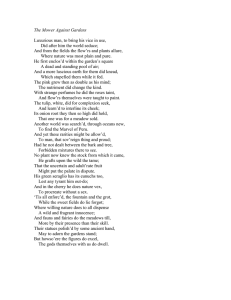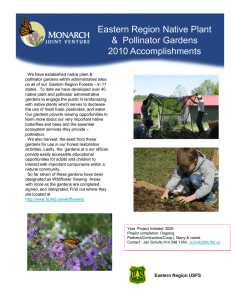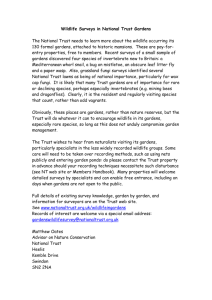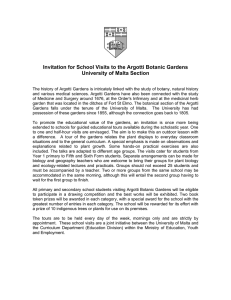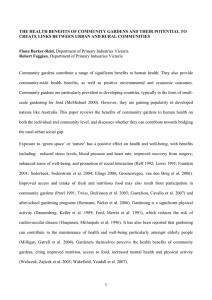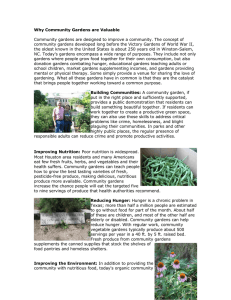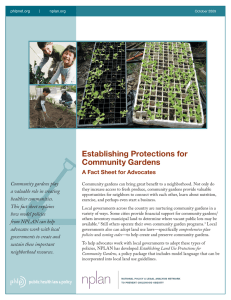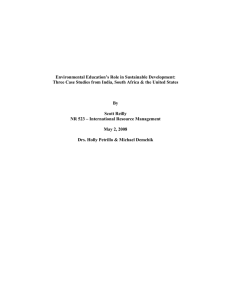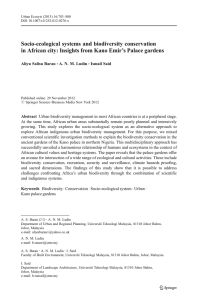IN SITU GUATEMALA Leiva, J.M., C. Azurdia, H. Ayala, W. Ovanda
advertisement
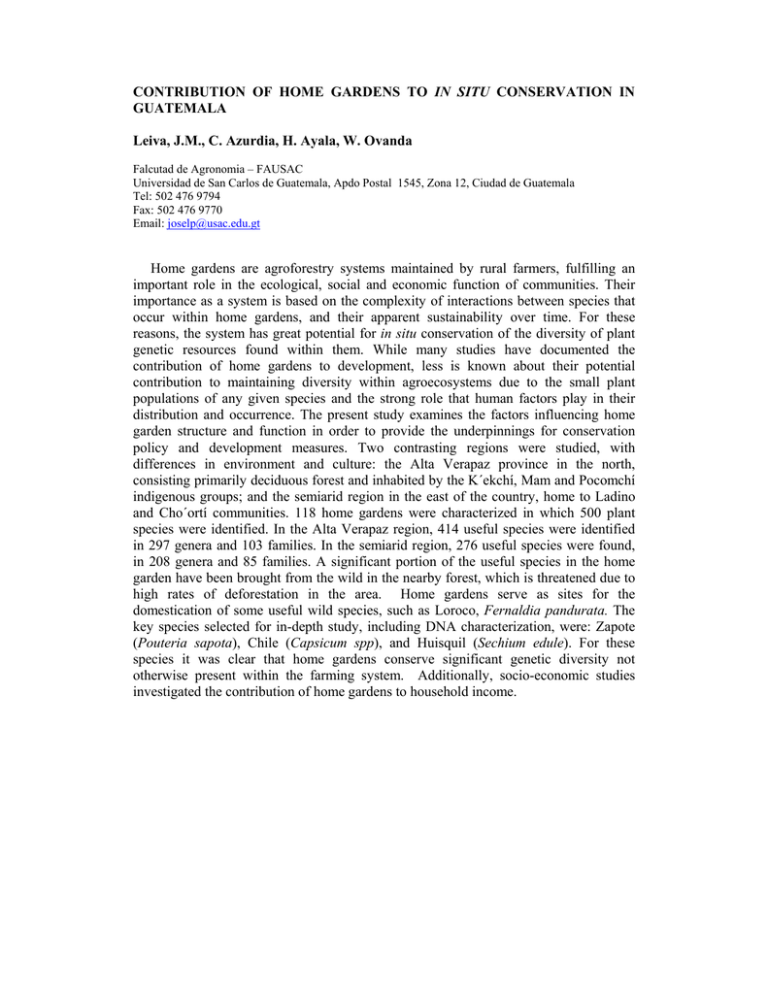
CONTRIBUTION OF HOME GARDENS TO IN SITU CONSERVATION IN GUATEMALA Leiva, J.M., C. Azurdia, H. Ayala, W. Ovanda Falcutad de Agronomia – FAUSAC Universidad de San Carlos de Guatemala, Apdo Postal 1545, Zona 12, Ciudad de Guatemala Tel: 502 476 9794 Fax: 502 476 9770 Email: joselp@usac.edu.gt Home gardens are agroforestry systems maintained by rural farmers, fulfilling an important role in the ecological, social and economic function of communities. Their importance as a system is based on the complexity of interactions between species that occur within home gardens, and their apparent sustainability over time. For these reasons, the system has great potential for in situ conservation of the diversity of plant genetic resources found within them. While many studies have documented the contribution of home gardens to development, less is known about their potential contribution to maintaining diversity within agroecosystems due to the small plant populations of any given species and the strong role that human factors play in their distribution and occurrence. The present study examines the factors influencing home garden structure and function in order to provide the underpinnings for conservation policy and development measures. Two contrasting regions were studied, with differences in environment and culture: the Alta Verapaz province in the north, consisting primarily deciduous forest and inhabited by the K´ekchí, Mam and Pocomchí indigenous groups; and the semiarid region in the east of the country, home to Ladino and Cho´ortí communities. 118 home gardens were characterized in which 500 plant species were identified. In the Alta Verapaz region, 414 useful species were identified in 297 genera and 103 families. In the semiarid region, 276 useful species were found, in 208 genera and 85 families. A significant portion of the useful species in the home garden have been brought from the wild in the nearby forest, which is threatened due to high rates of deforestation in the area. Home gardens serve as sites for the domestication of some useful wild species, such as Loroco, Fernaldia pandurata. The key species selected for in-depth study, including DNA characterization, were: Zapote (Pouteria sapota), Chile (Capsicum spp), and Huisquil (Sechium edule). For these species it was clear that home gardens conserve significant genetic diversity not otherwise present within the farming system. Additionally, socio-economic studies investigated the contribution of home gardens to household income.
